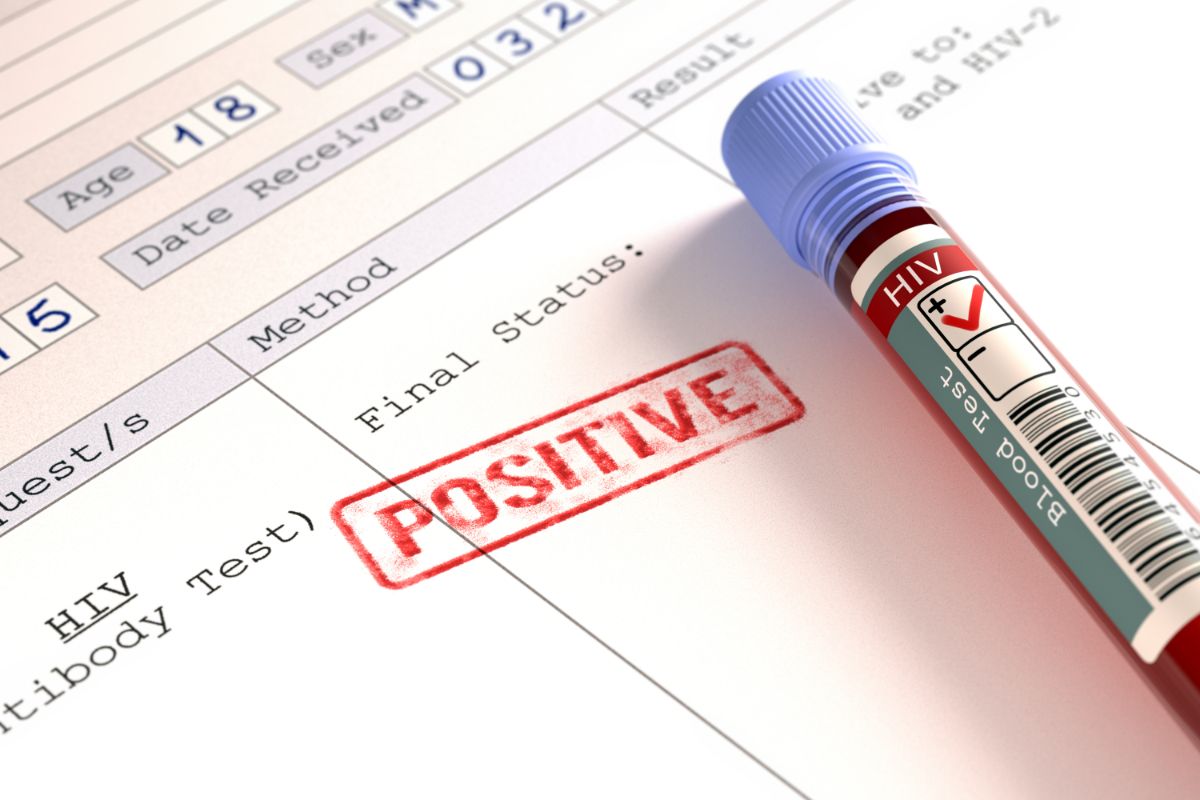Finding out someone close to you has HIV can be hard, but a lot of misinformation and fear can cause a lot of people to make huge mistakes and mistreat the person with HIV.

This can lead to isolation and damaged relationships over mistakes that could be avoided with better education – and that is why we are here.
We hope this article can help answer all the questions you have regarding living with someone who is HIV positive. We are going to go through any questions raised regarding your health, your relationship with the person you are living with, and how you can help and support them in the future.
This way, we hope that you will be less afraid or confused so you can help out the person with HIV and keep a strong bond for years to come.
Can You Catch Hiv By Living With Someone Who Has It?
This is one of the biggest concerns people have when they find out someone else in their household has HIV. Misinformation and mistakes often lead to unfair behavior and the person with HIV treated as though they are dangerous – but this is not the case.
Although HIV (see also ‘What Type Of Virus Is HIV?‘) is classed as a virus, it cannot be spread through casual contact. This means that any family members, friends, roommates, or visitors that visit a household where someone is HIV positive cannot catch HIV.
HIV is spread through coming into contact with a HIV positive person’s blood or bodily fluids. This is how HIV is spread during sexual contact or through the sharing of personal items like needles or syringes.
It cannot be spread through casual contact such as shaking hands, hugging, or even kissing because HIV does not spread via saliva.
This means that a person with HIV can continue to live a normal home and social life. They do not pose a ‘threat’ to you or your health. In fact, you are more of a danger to their health than they are to yours.
This is because people who are HIV positive can have their immune system weakened by the virus. This means that not only are they more likely to suffer from other types of diseases, but their bodies will struggle to fight it off.
So, if a HIV positive person lives with others who lack good hygiene habits, they are left vulnerable to catching dangerous diseases that can compromise their health.
How You Can Help Someone With Hiv At Home
If you live with someone who is HIV positive, then there are important habits you can pick up to help protect that person from catching diseases. To do this, you need to limit the chances of you spreading those diseases and exposing them to the person with HIV.
So, frequent hand washing is a must. This will help prevent you from spreading bacteria and viruses around your home so make sure you wash your hands before preparing food, before eating food, and after you use the toilet.
You should also keep your home as clean as you can by disinfecting surfaces such as floors and countertops. Regular cleaning products will kill any HIV germs but they will only be on a surface if the person with HIV has recently bled on those surfaces. So, make sure you wear protective gloves when cleaning up blood spills or excretions.
Do not share personal items like toothbrushes or razors. These objects can become exposed to blood and cannot be cleaned with products like bleach. So, it’s best not to share these objects with others.
As for washing up dishes and cutlery, there is no need to wash the person with HIV’s dishes separately or store them separately either. The same goes for laundry unless those clothes have been soiled by blood, vomit, urine or feces.
These pieces of clothing should be washed separately and handled carefully while wearing protective gear like disposable gloves. Wash the clothing using warm/hot water to ensure that all the germs are killed – do not use a cool wash.
These are just a few precautions you should take when living with someone who has HIV. The person can still prepare food for others and live normally around the house but everyone should always be cautious whenever the person’s bodily fluids (like blood or vomit) has been spread.
Just make sure you wear disposable gloves, clean using appropriate cleaning products, and limit your contact with the bodily fluids – it’s not as scary or as difficult as it may sound!
Can You Still Have Sex With Someone Who Has Hiv?
It is possible for someone who has HIV to continue having an active sexual relationship as long as protection such as condoms are worn for all sexual acts. This includes anal and oral sex as well as vaginal.
It’s also important that you ensure that the condoms are not beyond their expiration date, have been kept in a dark, cool place, and that you do not use any oil based lubricants (instead, use water based lubricants).
Follow these steps, and you can still continue having a sexual relationship with your HIV positive partner. As for kissing, saliva does not spread HIV but if your partner has had recent gum irritations that include bleeding, then deep mouth kissing should be avoided until the bleeding has stopped and the gums have healed.
How You Can Support Someone With Hiv
Even if you have all the practicalities down when living with someone who is HIV positive, you can still support them further through.
Just talking and being open with the person can be a huge help – but only if the person is willing to talk about it. When they are ready, be sure to listen and reaffirm your love and support for them.
Another great way you can help them is just by being willing to learn about their condition. There is still a lot of fear and misinformation surrounding HIV so just by reading this article, you are already taking one step closer to supporting those with HIV!
The more you learn about something, the less scary it is so educate yourself and be there for the person who has contracted HIV. Then, you can help them as they move forward with their life and you both can continue living happily under one roof.
- Understanding Male Reproductive Health: A Complete Guide - February 2, 2025
- Simple Healthy Skin Habits for Radiant Skin - December 6, 2024
- Unlocking the Connection Between Nutrition and Mental Health - December 3, 2024








